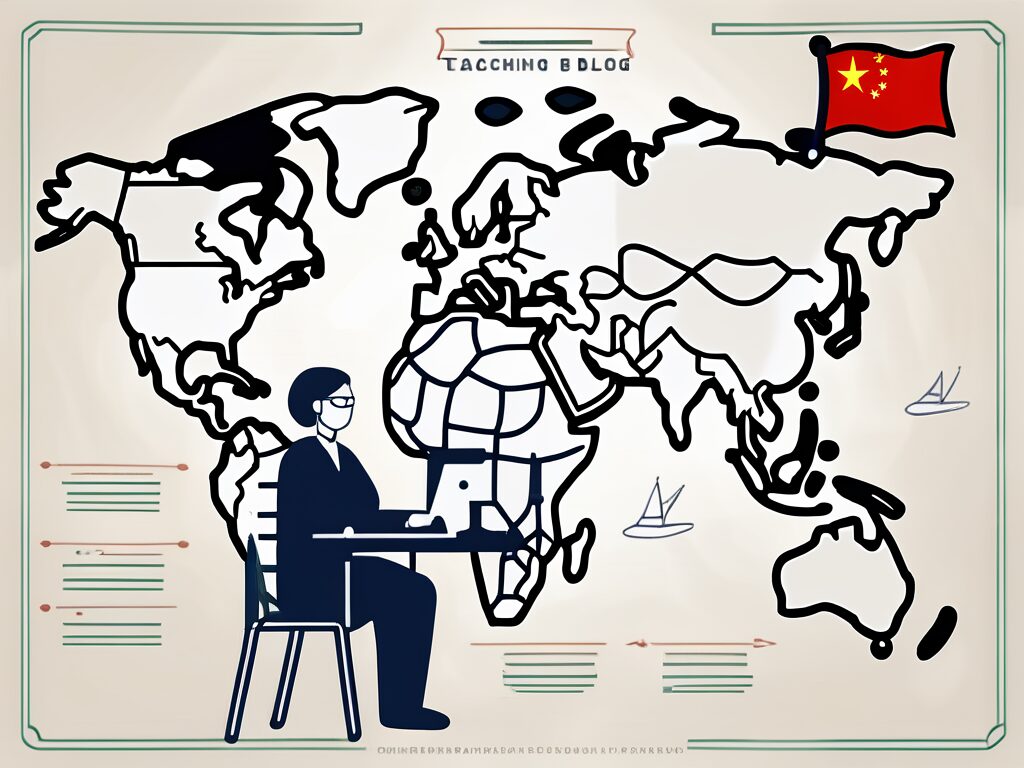html
Master’s in Education: 4 Key Teaching Challenges in Thailand vs. Qatar
In the ever-evolving landscape of global education, teachers face unique challenges that can significantly impact their effectiveness and the learning outcomes of their students. This is particularly true in countries like Thailand and Qatar, where cultural, economic, and educational frameworks differ widely. In this blog post, we will explore four key teaching challenges faced by educators in these two nations, providing insights that can help aspiring teachers and education professionals navigate their careers more effectively. Whether you are considering a Master’s in Education or are already in the field, understanding these challenges is crucial for fostering a successful teaching environment.
1. Cultural Differences and Language Barriers
One of the most significant challenges teachers encounter in both Thailand and Qatar is the cultural diversity and language barriers present in their classrooms. In Thailand, the majority of students are native Thai speakers, while in Qatar, a melting pot of nationalities and languages exists due to its expatriate population. This diversity can lead to misunderstandings and communication issues, making it difficult for teachers to engage all students effectively.
For instance, in Thailand, teachers often need to adapt their teaching methods to accommodate students who may struggle with English, the medium of instruction in many international schools. Similarly, in Qatar, educators must be sensitive to the various cultural backgrounds of their students, which can influence their learning styles and classroom behaviour.
To overcome these challenges, teachers can employ strategies such as:
- Utilising visual aids and hands-on activities to enhance understanding.
- Encouraging peer-to-peer learning, allowing students to support each other.
- Incorporating culturally relevant materials that resonate with students’ backgrounds.
2. Curriculum Adaptation and Implementation
Another challenge faced by educators in both Thailand and Qatar is the adaptation and implementation of curricula that meet the needs of their diverse student populations. In Thailand, the national curriculum is often rigid, leaving little room for teachers to tailor lessons to their students’ interests and abilities. Conversely, Qatar’s education system is rapidly evolving, with a push towards international standards and practices, which can create confusion and inconsistency in teaching approaches.
Teachers in both countries must navigate these complexities while ensuring that they deliver high-quality education. For example, in Qatar, the introduction of the Qatar National Curriculum has prompted many international schools to align their teaching methods with local standards, which can be a daunting task for educators accustomed to different educational frameworks.
To effectively adapt curricula, teachers can:
- Engage in professional development opportunities to stay updated on best practices.
- Collaborate with colleagues to share resources and strategies.
- Solicit feedback from students to understand their learning preferences and adjust lessons accordingly.
3. Classroom Management and Student Engagement
Classroom management is a universal challenge for teachers, but it can be particularly pronounced in Thailand and Qatar due to varying student behaviours and expectations. In Thailand, the traditional respect for authority can lead to passive learning environments, where students may hesitate to voice their opinions or ask questions. In contrast, Qatar’s multicultural classrooms may experience a wider range of behaviours, as students from different backgrounds bring their own expectations and norms into the learning space.
To foster a more engaging and productive classroom environment, educators can implement the following strategies:
- Establish clear rules and expectations from the outset.
- Utilise interactive teaching methods, such as group discussions and project-based learning.
- Build strong relationships with students to create a supportive atmosphere.
4. Professional Development and Support Systems
Finally, the availability of professional development and support systems for teachers can significantly impact their effectiveness in the classroom. In Thailand, many educators face limited access to ongoing training and resources, which can hinder their ability to stay current with educational trends and methodologies. On the other hand, Qatar has made significant investments in teacher training and development, but the rapid pace of change can leave some educators feeling overwhelmed and underprepared.
To thrive in their roles, teachers in both countries should seek out opportunities for professional growth, such as:
- Participating in workshops and conferences focused on innovative teaching practices.
- Joining professional organisations that offer networking and mentorship opportunities.
- Engaging in self-directed learning through online courses and resources.
Conclusion
In conclusion, while teachers in Thailand and Qatar face distinct challenges, the underlying themes of cultural diversity, curriculum adaptation, classroom management, and professional development are universal. By understanding these challenges and implementing effective strategies, educators can enhance their teaching practices and contribute to a more inclusive and effective learning environment.
Empower Your Teaching Career with IPGCE
As we strive for a more inclusive education system in Malaysia, the role of qualified and well-trained educators becomes increasingly crucial. IPGCE is dedicated to supporting teachers in their professional journey, offering the International Postgraduate Certificate in Education (iPGCE) to enhance qualifications and open doors to international teaching opportunities. With our program, you can expect a significant increase in interview callbacks, promotion rates, and salary. Plus, you’ll join a global network of educators, gain a deeper understanding of international curricula, and enjoy the flexibility of online study. Don’t let inadequate credentials or isolation hold you back. Join the UK’s #1 Teacher Training Course today and take a decisive step towards a fulfilling career in inclusive education.
For more insights on teaching challenges and professional development, check out our articles on Teaching International Curricula and Effective Classroom Management Strategies.

